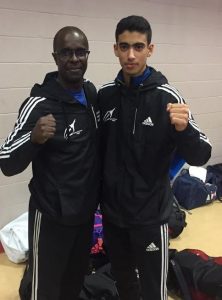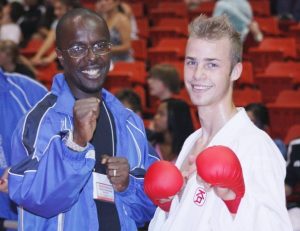I though it would be interesting to compare my coaching philosophy back in 2014 and my coaching philosophy today. Like i mentioned in my first post about valuing, among the NCCP CORE COMPETENCIES in my book VALUING is the root of them all! All my decisions as a coach are rooted in my personal Value system. My coaching philosophy is established by those values. Since i joined the HPCTL program i noticed to my values haven’t changed much but my coaching philosophy has evolved.
Coachin philosophy in 2014 https://www.youtube.com/watch?v=w24flKdwlCI
2014 coaching philosophy summary: my coaching philosophy is athlete-centered. You have to take the time to get to know the athletes. I think that in order to help them to develop in their quest to achieve great goals you have to take the time to personnaly know your athletes to allow them to build good work habits and ethics that will serve them for their everyday lives as well as their lives after athletics.
– Always seek to create a pleasant, stimulating and nurturing training environment and surround yourself with positive individuals who like to face challenges and who can confront us in a constructive way to help us evolve as an individual and as a coach!
-My goal is to transmit my passion for combat and help optimize the human machine and also help them learn from their successes, as well as their failures in training and competition to evolve as Athlete and as an individual.
Coaching philosophy in 2017: https://www.youtube.com/watch?v=Wmx9TBFOcrg&t=68s

2017 coaching philosophy summary :
The Best coaches don’t USE athletes!
They build them, inspire them, help them grow and most of all, they develop young men and women with their leadership styles, and they never forget that athletes are human beings, not machines!
Deal with the “person ” to help generate results !
instead generating results by using Performers!
 “Athlete First” (Servent leadership) type of approach has been proven to be the most efficient and winningest method of coaching in the long run!
“Athlete First” (Servent leadership) type of approach has been proven to be the most efficient and winningest method of coaching in the long run!
The type servant leadership leads to a more caring generative culture, while transformational leadership leads to an empowered dynamic culture, Transformational Leaders inspire and motivate those around them by providing meaning and challenge to everyone around them. BM Bass, RE Riggio – 2006 . I discovered during my time at UBC who i was as a coach i can tell more assertively that both styles match my core values, so i’m the kind of coach that is a “hybrid of both style”
When i first did the coaching philosophy exercise I thought that my philosophy was carved in stone, it as evolved and i realize that it will probably change over the years.
Gabriel thanks for the blog. I think it is fantastic that you were able to capture your coaching philosophy be video and compare with where you are at today. I was very impressed by your KIN 586 philosophy which is very values based. It is also incredible to see the facility that you work in and how you have built this over the years. The environment can reinforce the culture and philosophy that you are trying to achieve! I imagine that people who step into your gym / dojo know that they are in a performance environment. Lastly, I think that you confidence has really increased. Now you not only speak to your philosophy, I can see that you believe in it!
THIS PROGRAM GIVE ME A LOT OF CONFIDENCE AND COURAGE TO FACE NEW CHALLENGES AND SEEK NEW COACHING OPPORTUNITIES ON THE INTERNATIONAL STAGE !
I CAN’T GIVE TOO MUCH DETAILS RIGHT NOW, BUT I WILL LATER…
I’ M VERY FORTUNATE TO HAVE A GREAT COACHING ENVIRONMMENT TO ALLOW ME TO WORK AND EXPLORE TO MAKE MY ATHLETES BETTER!
IT WASN’T EASY BUT I WAS ABLE TO CREATE IT AT THE MOST EXITING POINT OF MY CAREER
IT WAS REALLY INTERESTING DOING THE EXERCISE OF COMPARING MY COACHING PHYLOSOHIES THAN AND NOW, AND I’M COURIOUS TO SEE HOW IT WILL EVOLVE IN 2 OR 3 YEARS FROM TODAY
Gabe, great share! I have not really thought about a coaching philosophy until I began the UBC program, so I’m still quite new at it. But by the end of the year, I feel some things have already shifted as well, and I anticipate things will change again in the future!
I actually had a shift in mindset for my own coaching philosophy when I was on Andy Evans’ panel presentation. He had more of a ‘life’ philosophy, in which he applied to his coaching. At the time, I had different philosophies for different roles, such as being a coach, an athlete, etc, but now I think that it is better to just have a general ‘life’ philosophy to apply to all aspects of our lives.
This relates to your philosophy because you have transitioned from being athlete to person centered, and I think that being person-centered is something that can apply as a ‘life’ philosophy! This is definitely a great way to counter EGO, as you have discussed in a previous blog post (Critical Thinking, I believe). Personally, I am still new to being person centered, as I have spent far too long as a competitive athlete in an individual sport. But I am always open to learning and I definitely thank you for sharing your experience and wisdom in your blogs!